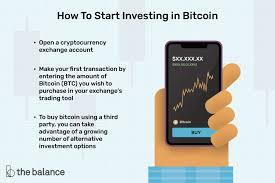The Stacks Ventures project accelerator has accepted 12 projects to help make CityCoins more appealing to global mayors who want to utilize a digital asset to receive rewards and bolster their economies.
Stacks Ventures is a $4 million accelerator for projects on the Stacks Bitcoin layer-2 smart contract solution. CityCoins is a project that enables partnered city governments to launch their own token on Stacks, with Miami City And New York City being the first two to sign on with MiamiCoin and NYCCoin.
As part of the partnerships, the local governments earn CityCoin rewards and stake the asset to receive additional rewards in Bitcoin
BTC

$17,419
.
In its second cohort of 24 projects to be accelerated, Stacks Ventures will accelerate 12 others that add wireless networking, Web3, gaming, nonfungible tokens (NFT), decentralized autonomous organizations (DAO), education and decentralized finance (DeFi) capabilities to CityCoins.
Along with the added capabilities, Stacks Ventures partner Trevor Owens told Cointelegraph that generating Bitcoin returns could “replace a city’s tax base.” In essence, he says cities could potentially earn enough yield to cover all costs that would otherwise be paid for with taxes.
Cities that use CityCoins are rewarded with 30% of the fees paid in STX from miners of the coins. Mayors can sell their STX rewards straight away for USD or stack the tokens to earn Bitcoin yield. Stacking on the Stacks network is similar to staking tokens on Ethereum.
Miami’s Mayor Francis Suarez said last November that his city would use its rewards to generate BTC yield, which will be distributed to residents of his city.
Owens feels that adding NFTs, DeFi and Web3 to CityCoins creates the most opportunity for prospective cities. He said, “Web3 is all about ownership, NFTs could be used in ownership of all nonfungible assets:”
Advertisement
Stay safe in Web3. Learn more about Web3 Antivirus →
“Mayors can see this is within striking distance. They can add services and apps through CityCoins that make [their] residents happier and healthier.”
CityCoins community lead Patrick Stanley feels that the new startups working on CityCoins will help it carry its mission to “increase the health, wealth, and happiness of cities and citizens wherever it’s activated.” However, he would ultimately like to have a stablecoin on the project.
He told Cointelegraph on Tuesday that “people will always converge towards a stable asset because the cognitive overhead on volatile assets is way too high.” As a result, volatile assets like Bitcoin will likely not become a currency.
As CityCoins evolves to serve more cities and more people, Stanley believes the project could help cities fight inflation through stablecoins, which he feels hurts the poor the most. He said:
“Cities may now have to protect their citizens against inflation. Wouldn’t it be great if they could do that through a stablecoin that earns Bitcoin yield?”
The current inflation rate in the United States is at its highest level since 1981 at a crushing 8.5% annually, according to economy tracker US Inflation Calculator.
Stanley’s zeal for stablecoins as a tool for driving crypto adoption echoes that of VegaX’s Sang Lee, who believes stablecoins will be essential in expanding cryptocurrency into capital markets.
Related: Quantum computing to run economic models on crypto adoption
Regardless of how it happens, Stanley believes that sooner or later, everyone will hold crypto as familiarity and accessibility increase. Among the new startups joining Stacks Ventures is one focused on education which could potentially aid in teaching the public about Bitcoin.
Since its launch last summer, Miami and New York City have begun using CityCoins to generate revenue for their residents. Philadelphia’s city government has expressed interest in partnering with CityCoins, and Austin appears poised to join Miami and New York City.
Updated: This story originally stated that there were 11 projects being incubated. It was changed to reflect that 12 are being accelerated. Patrick Stanley's title was originally published as Founder, but was changed to community lead.




